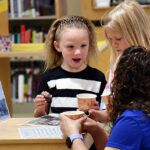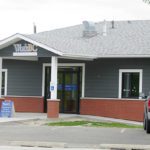Home »

Funds to help revitalize Indigenous languages
The First Peoples’ Cultural Council, a First Nations-run Crown corporation, will work in partnership with First Nations communities to develop and implement revitalization plans for each of the living Indigenous languages in B.C., to reverse the disruption to Indigenous languages from Canada’s history of colonization and residential schools.
“Language is critical for connecting Indigenous peoples to their culture, spirituality, identity and land,” said Scott Fraser, Minister of Indigenous Relations and Reconciliation. “For too long, Indigenous language has been under threat. The time has come for us to support First Nations in exercising their human right to speak and pass on their language and culture.”
In Budget 2018, B.C. allocated a $50-million grant to the First Peoples’ Cultural Council (FPCC) to help revitalize Indigenous languages in British Columbia, and address the current language crisis. Fewer than 6,000 people speak one of the 34 Indigenous languages in B.C.
“We are taking action now to support Indigenous communities’ work to preserve and revitalize endangered languages – languages that are cornerstones of cultural and social identities across our province,” said Carole James, Minister of Finance. “By investing in Indigenous languages, we invest in the future of Indigenous communities. I am proud our government is making this historic commitment.”
As a result of the funding, the First Peoples’ Cultural Council will expand community immersion programs that support the development of fluent speakers of Indigenous languages. These include the Mentor-Apprentice program, which pairs fluent speakers with apprentices for one-on-one immersion training, and the Pre-school Language Nest program, which supports the creation of language and culture immersion environments for children and their parents.
The pilot Silent Speakers program will become permanent. Silent Speakers helps those who understand, but do not speak their language, overcome challenges with using it in their communities.
“We sincerely thank the B.C. government for its strong leadership and new investment in the revitalization of Indigenous languages across B.C., and for recognizing the importance of Indigenous languages to the well-being of Indigenous peoples,” said Cynthia Callison, FPCC board chair. “This funding is essential to restore and continue the unique diversity of Indigenous languages in B.C. It is a concrete example of implementing the Truth and Reconciliation Commission’s calls to action toward reconciliation.”
The language revitalization plans will be developed with Indigenous communities and tailored to their individual needs. The First Peoples’ Cultural Council will also provide funding to increase the number of words and phrases uploaded to the FirstVoices online oral dictionary, and expand the online resources available for language learners and speakers.
“Urgent action is needed as many Indigenous languages are in danger of becoming extinct,” said Melanie Mark, Minister of Advanced Education, Skills and Training. “One of the Truth and Reconciliation Commission’s key priorities is revitalizing language. That’s what this work is about – not just giving lip service to reconciliation, but taking action.”
FPCC will work in collaboration with communities and partners to support additional priority actions to revitalize languages. These include creating new speakers and developing new language resources that will support communities to build skills and capacity for language mobilization.
“The First Nations communities we have been working with are seeing clear and measurable results, creating fluent language speakers as new knowledge keepers and documenting languages for future generations,” said Tracey Herbert, CEO of the FPCC. “This new funding will help us to build on our strong track record of success, and expand our work to all Indigenous communities in B.C., to help their mother-tongue languages flourish again.”
British Columbia has the greatest diversity of Indigenous languages in Canada. The 34 unique Indigenous languages, and over 90 dialects, represent 60% of all Indigenous languages in the country.
Learn about the First Peoples’ Cultural Council’s language documentation website
Lead image: The Ktunaxa Nation has been working hard the past couple of decades to preserve their language and teach more people about it.
e-KNOW







